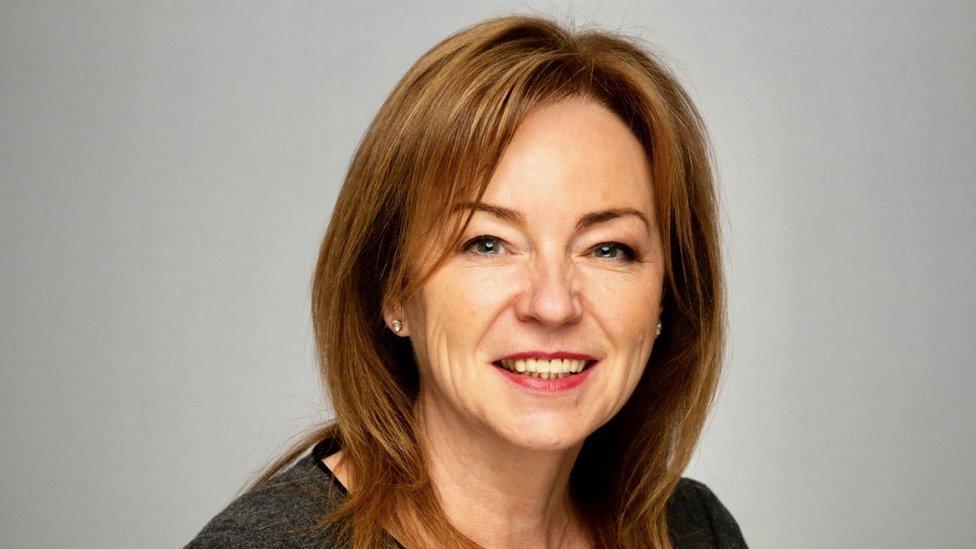Firms with more female executives 'perform better'
- Published

London-listed companies are more profitable when women make up more than one in three executive roles, according to new research.
Listed firms where at least one-third of the bosses are women have a profit margin more than 10 times greater than those without, it suggests.
Of the 350 largest companies listed, just 14 are led by women, according to gender diversity business The Pipeline.
15% of companies in the FTSE 350 have no female executives at all.
The group's co-founder Lorna Fitzsimons said having more women in the decision-making room means businesses are better able to understand their customers.
The Pipeline's Women Count 2020 report, external "shows the stark difference in net profit margins of companies that have diverse gender leaderships compared to those who do not," she said.
The Pipeline says London-listed companies with no women on their executive committees have a net profit of 1.5%, whereas those with more than one in three women at that level reach 15.2% net profit margin.
The report also points out that in the largest 100 London-listed companies, the total number of female chief executives is the same as the number of bosses named Peter - six.
When it comes to chief financial officers in those firms, fewer than two out of 10 are women, while men make up 96% of investment managers.
The sectors with the lowest number of women in executive roles are construction and retail.
"If you look at retail, entry level jobs are usually 80% women," Ms Fitzsimons said. "But they don't make it to the executive level."
Former Prime Minister Theresa May, who contributed to the report, said there can be no good explanation for the massive underrepresentation of women at the top of British business.
"Every single male CEO who looks around his boardroom table to see nine out of 10 male faces staring back at him needs to ask himself what he is doing to make his business one which his daughter or granddaughter can get on in," she wrote.

Vanda Murray chairs a FTSE-250 firm.
Vanda Murray OBE led Blick PLC in the early 2000s. She currently chairs the board at Marshalls PLC, a FTSE 250 construction firm.
While she welcomes recent moves to encourage women to make up 30% of company boards, she says it's in executive, decision-making roles where women are still underrepresented.
"There are talented females out there, no-one could really argue against this," she said.
Leadership groups with people from mixed backgrounds, ethnicity and gender do better because "they challenge more, and they have more discussion and debate and that leads to better decision-making," she said.
Ms Murray said Marshalls has a female HR director, but the rest of the executive committee members are men.
"We have plans in place. We have talent management programmes and training and development so that we can make sure the younger female managers come through."
- Published23 July 2020

- Published31 May 2018
